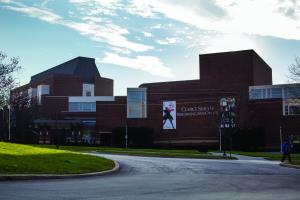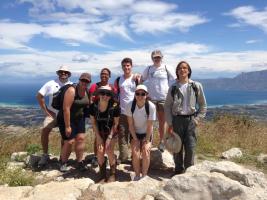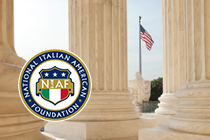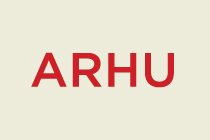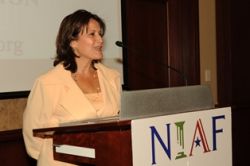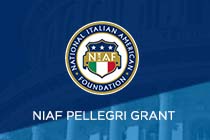COLLEGE PARK, Md. – A $500,000 grant from the National Italian American Foundation (NIAF) will fund new research at the University of Maryland on the legacy of ancient Rome as reflected in the architecture and art in the United States’ capital and in the nation’s system of governance.
The foundation awarded the $500,000 NIAF Ernest L. Pellegri Grant, named in honor of a foundation donor, to the university’s Department of Classics in the College of Arts and Humanities (ARHU) to expand the study of Latin language and ancient Roman culture, as well as the opportunities for students to study abroad and conduct research in the United States and Italy.
This is the largest single grant awarded to an educational institution in the foundation’s history, said Anita Bevacqua McBride, chair of NIAF’s Education and Scholarship Committee. “Through this partnership we will help connect the ancient remains of the Roman past found in Italy to the formation of our American identity,” she said.
Maryland was selected from a pool of 25 American and Italian universities because of the project’s compatibility with NIAF’s mission, the expertise of the faculty and the impact on students and the larger university community. The principal investigators for the grant are Jorge Bravo, Lillian Doherty and Judith P. Hallett from the Department of Classics.
“This generous grant exemplifies the expertise of classics faculty and allows us to capitalize on our proximity to Washington, D.C.,” said ARHU Dean Bonnie Thornton Dill. “This partnership is a logical extension and complement to the ways the faculty blend scholarship, teaching and community engagement to strengthen the study of Latin and promote its relevance to our modern lives.”
Examples of this influence include the classical design of the Capitol building, the mural in its dome painted by Constantino Brumidi showing classical gods surrounding George Washington as he helped create America, and a semi-nude sculpture of Washington that was created for—but not installed in—the Rotunda.
Most of the five-year grant will fund scholarships for undergraduate student education abroad, alternate spring breaks and summer research, and provide graduate student fellowships to support research by master’s-level candidates in classics and related fields of study.
“Many of our alumni are highly regarded teachers of Latin and classical culture,” said Lillian Doherty, chair of the Department of Classics. “Through our students the legacy of Roman culture will be passed on to future generations.”
###
ABOUT THE UNIVERSITY OF MARYLAND
The University of Maryland is the state's flagship university and one of the nation's preeminent public research universities. A global leader in research, entrepreneurship and innovation, the university is home to more than 37,000 students, 9,000 faculty and staff, and 250 academic programs. Its faculty includes three Nobel laureates, two Pulitzer Prize winners, 49 members of the national academies and scores of Fulbright scholars. The institution has a $1.8 billion operating budget, secures $500 million annually in external research funding and recently completed a $1 billion fundraising campaign.
ABOUT THE NATIONAL ITALIAN AMERICAN FOUNDATION
The National Italian American Foundation (NIAF) is a 501 (c) (3) nonprofit, nonpartisan educational foundation that promotes Italian American culture and heritage. NIAF serves as a resource on the Italian American community and has educational and youth programs including scholarships, grants, heritage travel, and mentoring. NIAF is also the voice for Italian Americans in Washington, DC and works closely with the Italian American Congressional Delegation and the White House. NIAF’s mission includes advancing US – Italy business, political, and cultural relations and has a business council that promotes networking with corporate leaders. The NIAF was founded in 1975 as a non-profit organization in Washington, DC. It is entirely non-partisan. Visit www.niaf.org.

